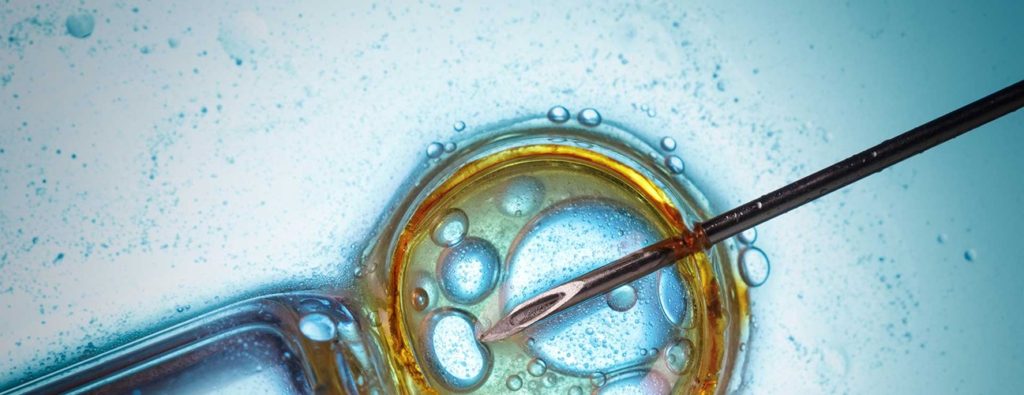One of the oldest persisting myths is that while there are a limited number of eggs (which is true), Sperm is available in a lifetime supply.
Not only women, but men also face higher rates of infertility past age 40, with lower sperm counts and quality.
Men have a Biological Clock, too
One of the oldest persisting myths is that while there are a limited number of eggs (which is true), Sperm is available in a lifetime supply.
Not only women, but men also face higher rates of infertility past age 40, with lower sperm counts and quality.
In addition, children of men over 40 are at heightened risk for autism, schizophrenia and childhood cancer.
Wearing tight underwear may affect negatively Male Infertility
Wearing tight underwear, such as briefs, can raise heat in the scrotum and impair sperm production.
Boxer-wearers had 25% higher sperm concentration and a 17% higher sperm count than those wearing tight underwear (2018 Harvard Study – 656 male partners of couples seeking fertility)
In fact, in order to produce Healthier Sperm, a man’s testicles must be 7 degrees cooler than his body

Sperm can live up to 5 days inside a Woman
Sperm that’s been ejaculated into a woman can live inside the uterus for 5 days. This is due to the protective effects of cervical mucus and cervical crypts.
But if sperm have a chance to dry out, they basically die. Ejaculated sperm that land on cold, dry objects may die after a few minutes — although very rarely they may last a whole 30 minutes. They may die even faster in a hot bath or a hot tub due to the heat or chemicals in the water.
Antibodies can Attack Sperm
In certain, relatively rare instances, antibodies can interfere with conception, making it hard for sperm to move and function as they should. This case is called Immunologic Infertility. For example, the ability of Sperm to travel through the Fallopian Tube to an Egg is impaired. One of the treatment options is lowering anti-sperm antibodies by taking oral steroids or undergoing IVF in vitro fertilization in advanced cases.

Sperm Do not swim like Olympic Athletes
Sperm route is described “more like a challenging military obstacle course” and less of a standard race. And even then, sperm require more than a little boost from the female productive system to make sure they get to the finish line.
In fact, most of the motility work is done by the uterus muscles. It coaxes the sperm along to the fallopian tubes, towards the egg.
On another hand, sperm don’t really swim straight — for the most part. Often sperm movement ability, known as motility, is classified into one of three groups:
- Progressive Motility: actively moving in straight line or large circles
- Non-Progressive Motility: any other pattern except forward
- Immotile: not moving
Semen only contain 10% Sperm
Semen, also known as seminal fluid, is an organic fluid created to contain spermatozoa.
A usual semen volume per ejaculate is around 2 to 3 ml or more. Sperm constitute approximately 10% of semen volume, the rest are enzymes, Vitamin C, Calcium, Protein, Sodium, Zinc, Citric acid and Fructose sugar.
Sperm take about 75 days to grow in the testicles
Just as men are always expected to be making money, they are always making sperm, too—roughly 1,500 every second. On average, it takes 50–60 days for sperm to develop in the testicles.
After this, the sperm move to the epididymis, which are the ducts behind the testicles that store and carry sperm.
It takes about 14 more days for the sperm to fully mature in the epididymis.
Smoking and Drinking are inversely related to Fertility in Men
Not only do tobacco smokers tend to have lower sperm counts, but secondhand smokers also can experience this problem. the World Health Organization shows that smoking reduces pregnancy rates by 44% in smoking men whose partners are undergoing in vitro fertilization.
Excessive alcohol use, meanwhile, can lower your testosterone level, making it harder to get an erection, and is linked to liver diseases, also tied to fertility issues. Other substances that can impair male fertility include marijuana, cocaine and heroin
Men should avoid certain plastics, chemicals and environmental pollutants
Common household products can expose men to chemicals linked to infertility. Be on the lookout for bisphenol-A (BPA), which can be found in canned goods and plastic containers; phthalates (found in plastic bottles); fire retardants; and pesticides. Pregnant women can pass these chemicals to their sons while in utero, causing anatomic changes linked to infertility. Men with jobs that expose them to chemicals associated with infertility—such as firefighters, who are in contact with flame retardants, or farmers, who work with pesticides—should consider banking sperm when they are young, experts say.
Men shouldn’t keep their cellphone in their front pants pocket
Anything that heats up your scrotal region should be avoided, if you are trying to have a child. This means keeping out of the hot tub and sauna; avoiding long bike rides, drives or anything that requires you to sit for lengthy periods of time; limiting how much you work on your laptop when it’s actually on your lap; and keeping your cell phone away from your genitals. This means not carrying it in your front pocket, but instead moving it to the rear pocket.

